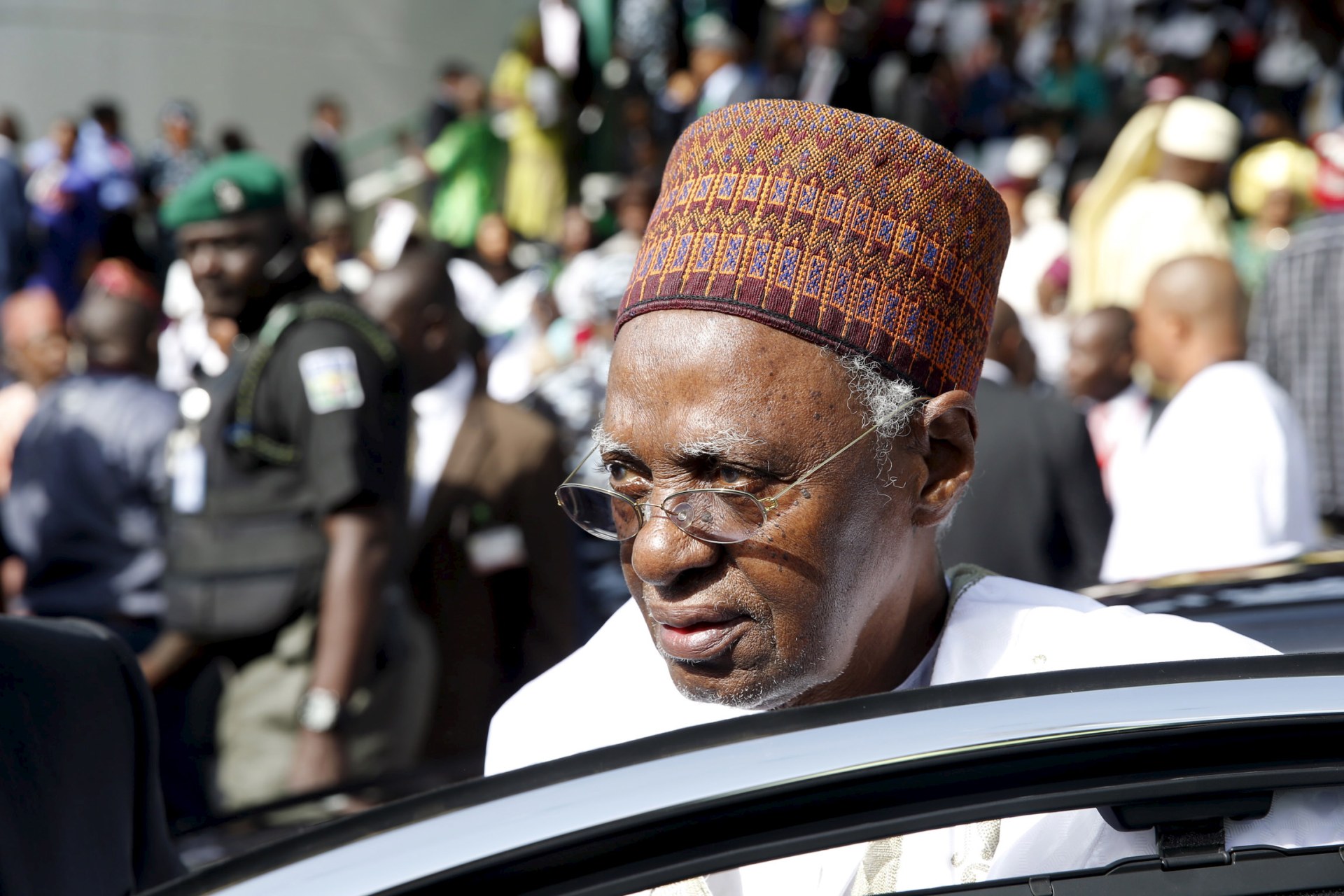Shehu Shagari, President of Nigeria’s Second Republic, Passes Away

By experts and staff
- Published
By
- John CampbellRalph Bunche Senior Fellow for Africa Policy Studies
Former President Shehu Shagari passed away on December 28, 2018, in Abuja, at the age of ninety-three. He was the only president of Nigeria’s Second Republic, which lasted from 1979 to 1983. His government was overthrown in a military coup led by then-General Muhammadu Buhari, who is now the democratically elected president of the country’s Fourth Republic. (The Third Republic, which began in 1993, was swiftly ended after the military chief of state at the time, Ibrahim Babangida, annulled that year’s election before it’s victor, MKO Abiola, could take office.)
President Shagari assumed office after elections in 1979. The post-civil war military government, led by General Olusegun Obasanjo, later the civilian president from 1999 to 2007, handed over power to him. It was a period of hope—the military voluntarily relinquishing power to a civilian following elections—and therefore, both at home and abroad, the shortcomings of the elections were overlooked. Internationally, General Obasanjo received much credit. The Second Republic operated under a new constitution, which replaced the Westminster system of government with a presidential system, broadly modeled on that of the United States.
Shagari was a devout Sunni Muslim with three wives. He was a member of the Fulani ethnic group, which is dominant in northern Nigeria. His reputation among Nigerians was that he was honest and mild, a gentleman of the old school. He trained as a teacher at the Teachers Training College in Zaria, then one of the few tertiary education institutions in northern Nigeria. He entered politics early. He was elected secretary of the then-largest political party in northern Nigeria and then to the federal legislature in 1954, in the late colonial period. After independence, he held numerous positions, of which the most important was probably commissioner (minister) of finance from 1971 to 1975.
His presidency was marked by a dramatic fall in international oil prices which had a devastating impact on Nigeria’s economy. In response, his government attempted to expel foreigners who had come to Nigeria during the days of the oil boom. An estimated two million people, mostly Ghanaians, literally walked home, in what at the time was one of the larger movements of African peoples. The fall in oil prices ignited an orgy of corruption among the country’s elite, which Shehu Shagari appeared unable to control. There was also a revolt, based in Kano, by a radical, Islamist millenarian cult, the Maitatsine, which is sometimes compared to Boko Haram. It was finally put down by the army in a bloody fashion. Shagari also tried to accelerate the construction of a new federal capital, Abuja, to promote the unity of the country. It was to be located near the geographic center of Nigeria, and was not associated with any particular ethnic group.
In 1983, Shagari was elected to a second term in elections that were more blatantly rigged than those of 1979. Widespread rioting ensued. Buhari’s coup, which promised restoration of security and an end to corruption, was initially popular. Shagari was placed under house arrest, but was ultimately cleared of any wrongdoing. The coup’s popularity faded quickly in the face of Buhari’s authoritarian approach, especially his “war against indiscipline,” which directly touched the lives of Nigerians, especially those in urban areas.
After he was released from house arrest, Shagari came to be regarded as an elder statesman. According to the media, no less than five former presidents called on him on his 90th birthday, though not President Buhari.